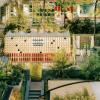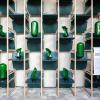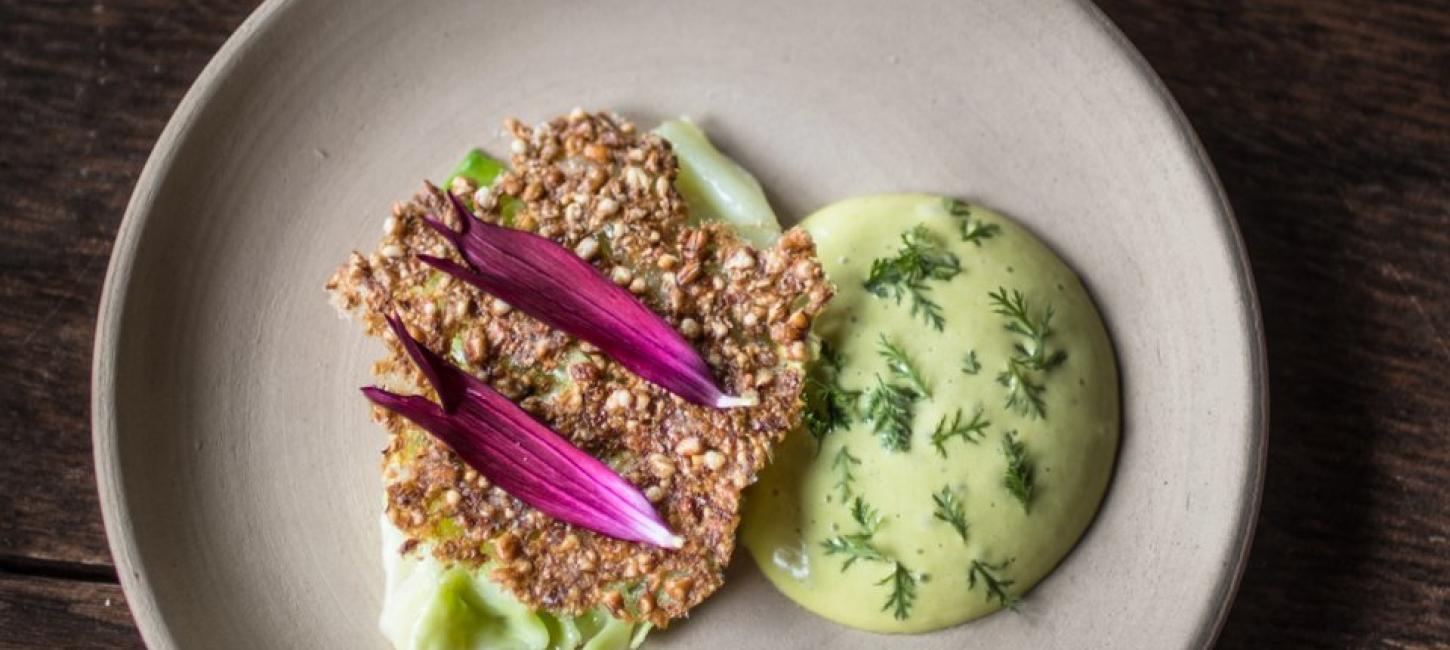
Denmark : The Future of Food
When it comes to food culture, Denmark is a known innovator with a strong focus on sustainability and the future. Our restaurants feature at the top end of the world’s best lists and have a strong showing in the Michelin guide; this year one of them is even heading to the edge of space.
To stay at the top of our game when it comes to gastronomy, we are always thinking about how to make dining experiences and the food industry better. We consider how we will eat in the future, how agriculture needs to change to keep pace with a growing world population, and how technology can play a role in developing new sustainable paths for farming and dining.
Innovation extends to how to grow our food; solutions must be circular to be genuinely sustainable. We need to keep reducing waste, not only in the traditional sense but as a resource to create more from less, like mushrooms from coffee grinds. What keeps these future food labs ticking is knowing we need to create better food for more people, and always being aware of the future challenges in the food arena. There’s always something new to watch out for in the Danish food scene – here’s a little taster.
Celebrating 20 years of the New Nordic Manifesto
It’s a sign of how successful it has been that the New Nordic Manifesto feels a bit ordinary these days. Twenty years ago, the idea of eating locally, seasonally and sustainably was radical enough to change the way we eat; today, it just feels normal. The movement has influenced restaurants and the food industry from Denmark to Bolivia, developing and regenerating food scenes around the world.
In Denmark itself, the legacy of the movement is of course seen in fine dining restaurants including noma, twice the world’s best restaurant, which closes this year for a reinvention, along with Kadeau, a restaurant with a long tradition of focusing on foraging and fermentation. It’s also seen at an affordable level, from traditional hot dogs stands with organic options to cafés selling classic Danish porridge (grød), and bakeries selling rugbrød, a dark grain-heavy bread.
Foraging has become a key theme in Denmark’s food scene. The organisation Havhøst Naturpark Lillebælt works to promote sustainable maritime gardens and regenerative ocean cultivation. In 2023, its members sustainably foraged a massive 3400 kg of mussels. Their gardens also function as a framework for teaching, workshops, and communal dinners. There’s also an app for that – everyday Danes can use the Wild Food App, a project initiated by MAD, the charity wing of noma, to forage wild, local ingredients, from berries to herbs, seaweed and roots, and find a recipe for those wild foods at the end of it.
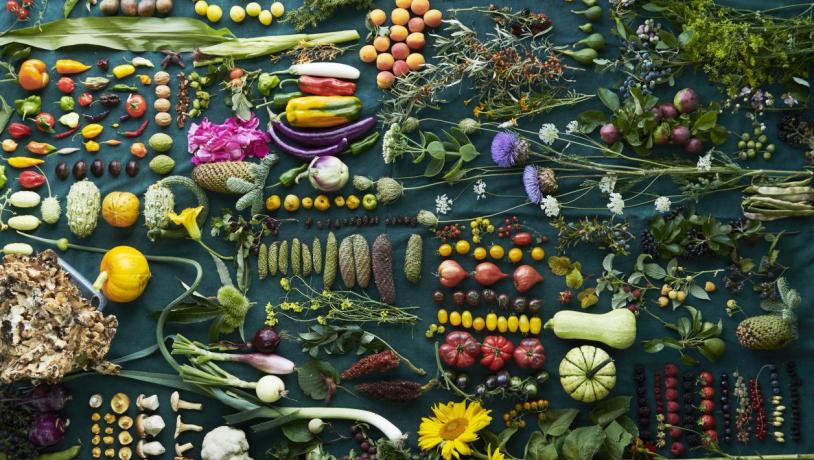
Foto:Ditte Isager
Food Production for the Future
Food production is one of the biggest challenges in creating a globally sustainable future. The world’s population grows exponentially every year and at the same time, climate change is making it more difficult to create a sustainable and reliable food production system. Global food supply is facing vast challenges in all directions. Forward-thinking Danes are looking to those needs and finding solutions.
They include chef Rasmus Munk, of two-Michelin starred restaurant Alchemist, who opened an experimental food research lab, SPORA, in 2023. The lab seeks to find ways to create food from waste, and is experimenting with ideas around mushrooms, seaweed and more. His team has developed a way to make chocolate from beer industry waste and is working on a project sending food to the edge of space.
Denmark is a farming nation, but it’s also urbanising, and the clash between the city and the countryside is something to navigate. Denmark’s multifaceted approach to feeding the future includes a technology system, Next Food that creates precise soil-free growing systems that can operate in small spaces, ideal for the culinary industry. It means you don’t need a field to grow produce – it can be done in compact city spaces too. In a similar way, Nabo Farm is seeking new and effective ways of farming. Its urban hydroponic farm can produce microgreens in minimal space, using up to 90% less water than a regular farm.
Experimental food is also being served at the Danish Technological Institute (DTI), where they have created a way to 3D print food. It’s a way to create food that can be customised for the individual diner and can incorporate the right level of nutrients and be shaped and textured as desired. The technology has wide applications across hospitals and the military, gourmet restaurants and aerospace technology.
Sustainability & Circularity
Food waste is a huge global problem, and Denmark is a world leader when it comes to solutions, both associated with packaging and with food itself. Too Good to Go is a pioneering food waste start up from Denmark in operation around the world that saves food from supermarkets, restaurants, companies and hotels that would otherwise be thrown away. It works in two ways: by offering companies a way to reduce their food waste, and by offering consumers a cheap way to buy food close to its expiry date. In 2023, the app, which is used in 18 countries worldwide, saved 121,686,720 meals.
Waste from coffee mounts up: when brewing coffee, only 0.2 % of the coffee beans’ nutrients are used. Beyond Coffee spotted this potential and created a way to grow a wide variety of mushrooms from leftover organic coffee grounds. The process minimizes food waste, it’s circular, and the product is rich in nutrients as well as proteins.
When it comes to packaging, Denmark takes it seriously. It already runs a recycling scheme across the country for plastic and glass bottles and cans, a deposit system where users are reimbursed when they deposit empty bottles and cans in a return machine. Danish food companies are also increasingly developing reusable, sustainable and biodegradable materials for food packaging.
In 2023, Michelin awarded 30 Danish restaurants with 1, 2 or 3 stars. Over half of them received a sustainability emblem, an accolade given to restaurants that are at the forefront with sustainable gastronomy or are taking smaller steps to work in a greener way. It’s just one highlight from a dining scene that holds sustainability in food and farming as a key tenet
Driving Quality of Life
While multiple businesses shape the future of food, feed high rollers and consider more circular ways to feed the masses, initiatives also focus on health and wellbeing. Among them, is Danmark spiser sammen (Denmark eats together), an initiative inviting all of Denmark to eat together to fight loneliness. Through an online platform everybody, from private people to bigger organizations, can arrange a dinner for people to join. The initiative aims to bring people together, spark a feeling of togetherness and create community.
Skee Is is another firm seeking to improve health in Denmark – via its delicious ice creams. The team has developed a protein-rich icecream that tastes delicious, ideal for ill and elderly people with a small appetite. As a result of this public-private partnership you can now get ice cream on prescription across Scandinavia.
Get a taste of the culinary wonders of everyday Danish food at The Denmark Pavilion.
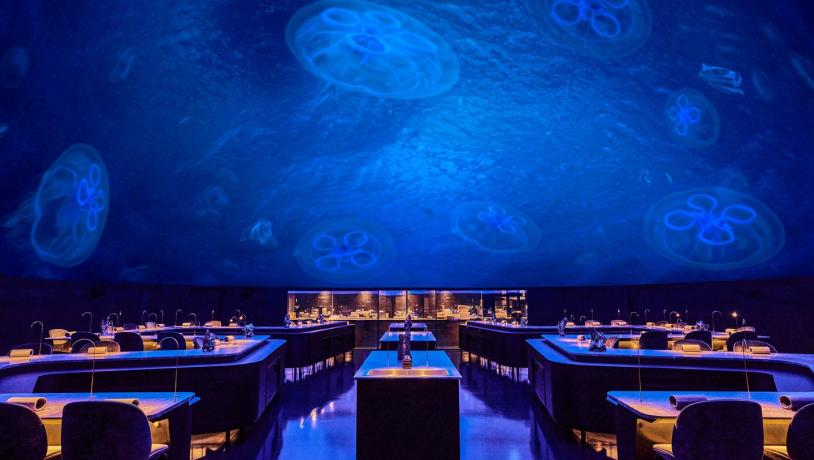
Foto:Claes Bech Poulsen
Food facts about Denmark
|
EDITOR'S NOTESThe Denmark Pavilion is open to the public 26 July–11 August; 11am-10pm (except August 1, from 11:00 to 16:00). Admission is free. WHAT'S ON To stay updated re. What’s On at The Denmark Pavilion, go to: denmarkpavilion.com SoMe hashtag: #denmarkpavilion2024 FURTHER INFO / CONTACT INFORMATION Media attending the Olympic Games are more than welcome to visit The Denmark Pavilion and to contact the press team for further details. Please reach out to PR & Press Manager Lasse Emil Kristiansen at laekri@visitdenmark.com or +4531415390. WANT TO KNOW MORE? Visit foodnationdenmark.com HIGH RES. IMAGES TO GO Download images and videos from The Denmark Pavilion in Paris and from our extensive Denmark media database here: https://www.visitdenmark.com/denmark-pavilion/images ABOUT THE DENMARK PAVILION During the Paris Olympics, visitors from around the world can enjoy a free visit to a small piece of Denmark at Champs-Élysées. Here, they can encounter Danish ideas that contribute to creating a better life and a better world. VisitDenmark, in collaboration with the Ministry of Industry, Business and Financial Affairs, leads this initiative, which is supported by Realdania, the Consul George Jorck and Wife Emma Jorck Foundation, and The Trade Council. |
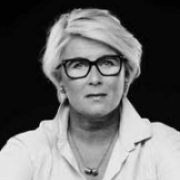
Kommunikations- og udviklingsdirektør

PR & Press Manager, Italy & France
PR & Press Manager, UK
